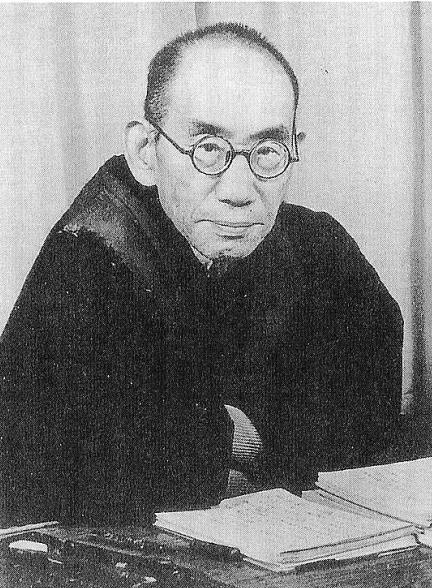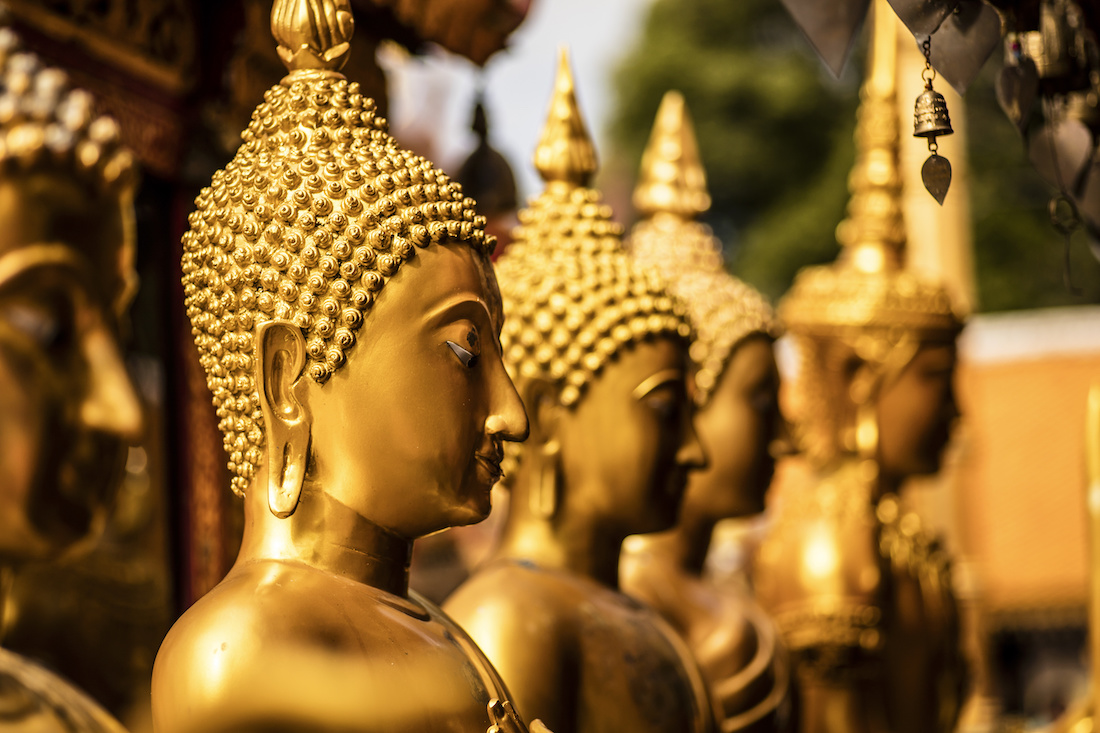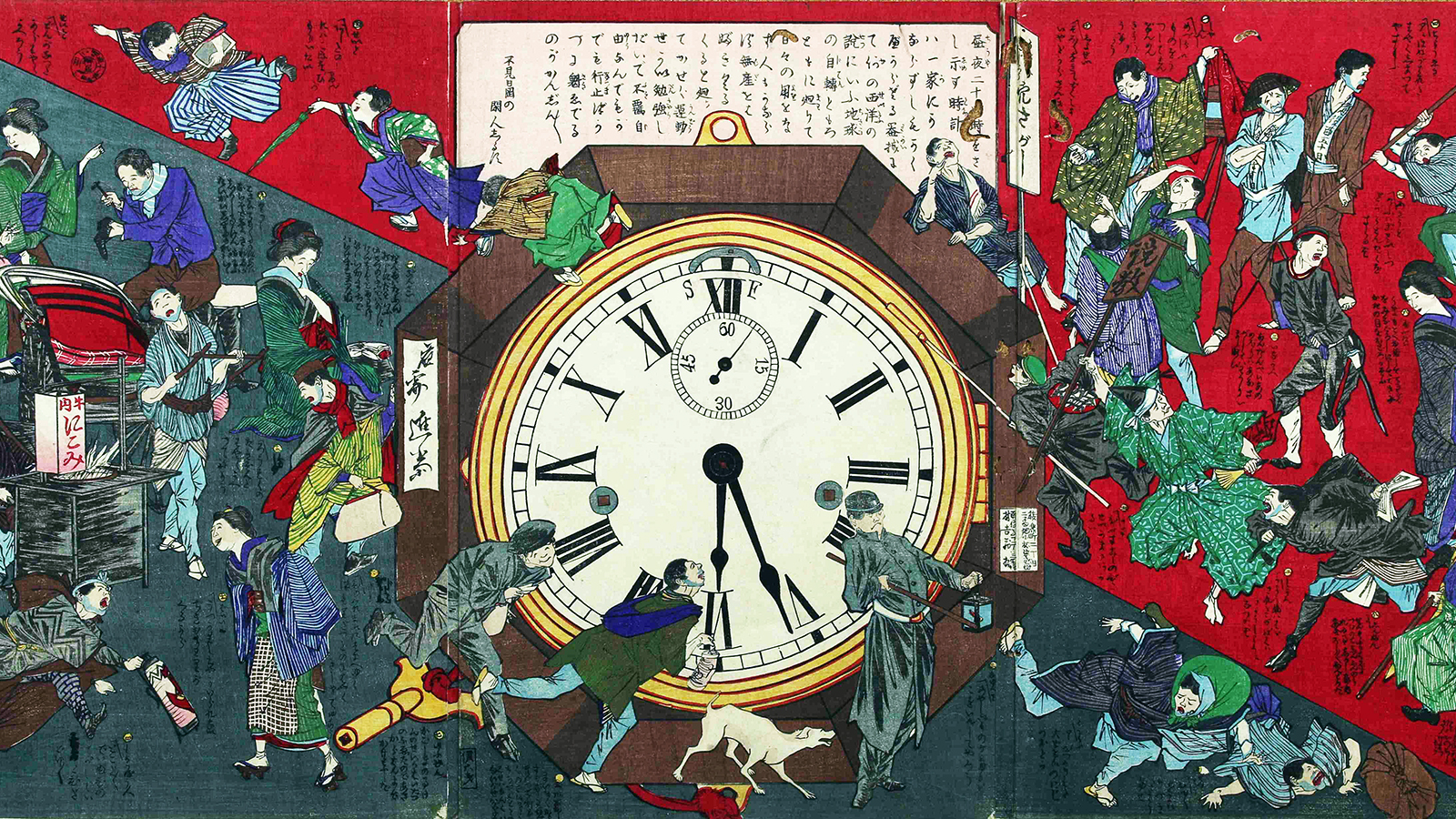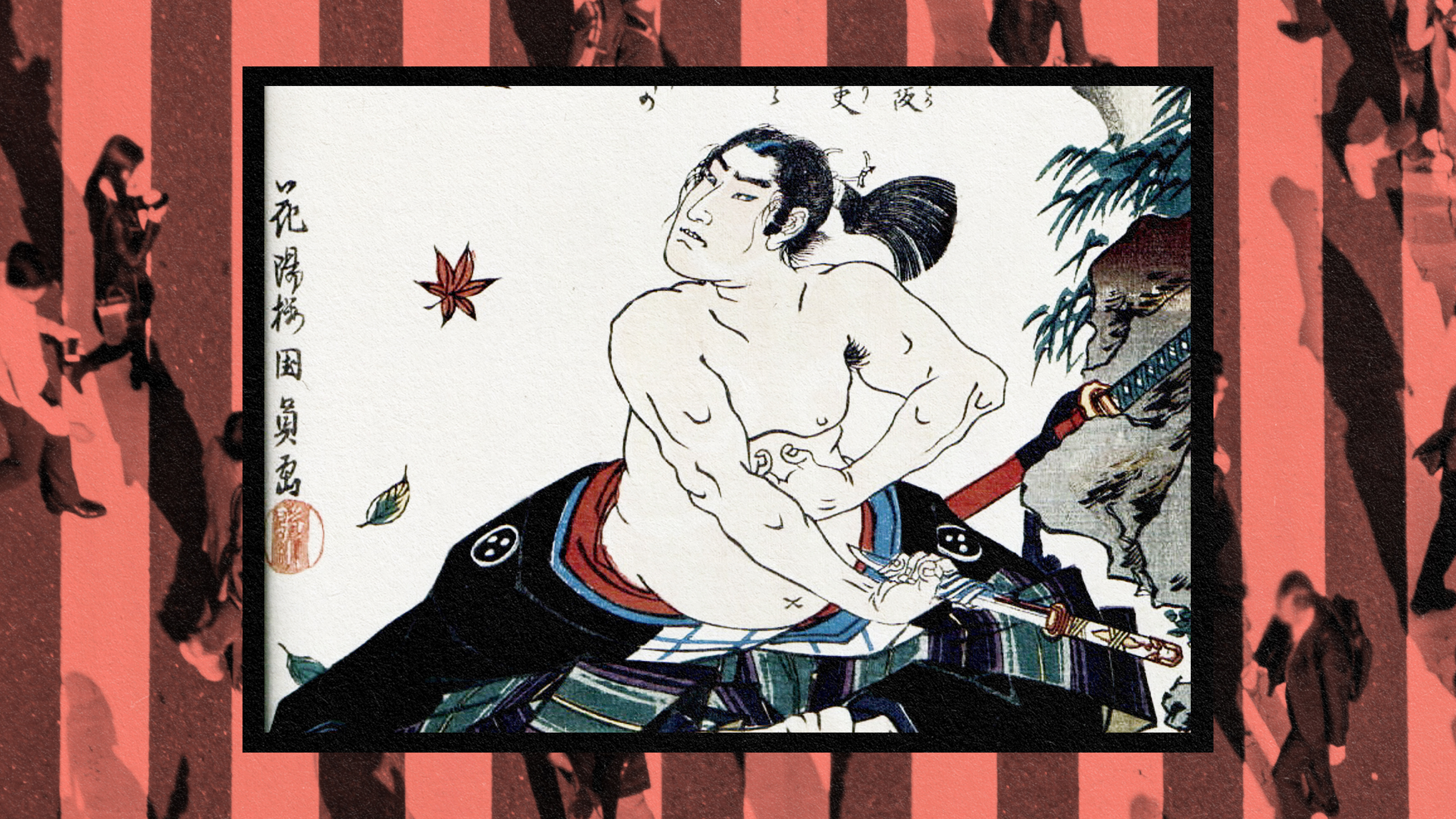Is there such a thing as “Japanese philosophy”?

- It is the mainstream view of Japanese intellectuals that there never has been any “philosophy” in Japan.
- Philosophy is widely perceived as essentially Western: a foreign import.
- “Japanese philosophy” was developed and naturalized over time — just like ancient Greek philosophy.
The West had been in East Asia for hundreds of years in the form of the Dutch East India Company, among other trading companies, but, in the late 19th century, they turned up with guns and warships. They booted down the door to Japan, locked by the Tokugawa Shogunate’s policy of isolationism (sakoku) for more than 250 years, because they wanted to “trade.” Of course, the agreements they came to were hardly fair and, in later decades, came to be referred to as “unequal treaties” (fu byōdō jōyaku).
They did not just take from Japan, though: Westerners also brought philosophy with them. Nishi Amane invented a Japanese neologism for philosophy (tetsugaku) in 1874, the Chinese characters for which were also used in Korea (cheolhak) and China (zhexue). The Japanese themselves rapidly began learning English, French, and German to make sense of imported philosophical texts, and many were sent by the government to Europe to study there.
Faced with this new thing called “philosophy,” the public intellectual Nakae Chōmin realized in 1901 that, “from antiquity to the present day, there has never been any philosophy in Japan.” Other Japanese intellectuals followed suit and, even a century later, it is still the mainstream position. Philosophy departments in Japanese universities teach the history and contemporary problematics of Western philosophy in a curriculum that has been characterized as “De-Kan-Sho,” referring to Descartes, Kant, and Schopenhauer who constitute its central (sometimes only) components. Asian intellectual history, on the other hand, is studied in departments of regional studies, religion, history, and literature. This has been the case since the establishment of the Japanese university system by Katō Hiroyuki in 1877 and has not changed since.
Japan defies the Eurocentric narrative
Why, though, was the long history of Japanese thought not characterized as philosophy? Here’s a widely accepted way of looking at the problem of “world philosophies,” of which Japanese philosophy is of course an example: When Europe colonized the world and came across foreign systems of thought, they denied that it was philosophy because, firstly, the natives did not have a word for philosophy, so because they could not identify themselves as philosophers, they weren’t philosophers; secondly, philosophy was just too great and noble a thing to suggest that mere colonies could have it, and to equate the mighty intellectual history of Europe with that of some unknown backwater simply would not do. European colonizers were just too arrogant and ignorant to even begin to consider that there might be philosophy outside of Europe. Then, after the Second World War, when all the empires began to fall, scholars all over the world scrambled to appoint their national intellectual histories to the position of philosophy to prove that they were just as good as their once colonizers.
Clearly, Japan doesn’t fit that mold. If the reason why many non-European traditions have been excluded from being considered “proper” philosophy is ignorance of those cultures, as, for example, Jonny Thomson claims, then why are the most avid deniers of the existence of Japanese philosophy the Japanese?
We need to change how we understand “philosophy” — it didn’t just pop up in ancient Greece as your philosophy course might suggest.
There have been some attempts to make the Japanese fit this narrative, however. The Japanologist Thomas P. Kasulis argues that it is because they are “intellectually and culturally colonized” that the Japanese deny that they have philosophy. He, like many others, believes that the Japanese were tricked in the modern period into holding the Eurocentric picture that “European philosophy” is essentially a truism because only the Europeans could transcend their cultural and linguistic particularities in search of universal truth. Academic claimants to this position maintain that Western arrogance dovetails with Japanese deference, citing the “self-colonizing mission” of some intellectuals to “Escape Asia and Enter Europe.”
However, not only were they never colonized by the West, the Japanese also never saw philosophy as an accolade or some kind of demonstration of intellectual equality. When the door to Japan was kicked open at the end of the 19th century, the Japanese had to modernize at an astonishing rate and therefore wanted the West’s technology — that is, their weapons — but they didn’t want anything to do with Western culture, which they eschewed in a great burst of national pride that even turned quite insidious (that is, xenophobic) in the 20th century with the ultranationalist ideology of State Shintō. So, far from idolizing Western culture, the Japanese actually vilified it.
Homegrown arguments against “Japanese philosophy”
The Japanese had other reasons for denying that their thought was philosophy. One reason is that you might say, like Watanabe Jirō and Jacques Derrida, that pure philosophy is Western because it originated in the West and the very concept of philosophy (philosophia) is Greek, so Japanese thought (shisō) is not philosophy because it is something different (that is, non-Western), not something worse — which is a point labored by Ikuta Chōkō.
Another possible reason is that Japanese philosophy is too religious. Nishimura Shigeki thought that Buddhism oversteps the bounds of reason to preach about hell and paradise. In contrast, he thought, philosophy is an investigation of the truths of the universe from the ground up, and as such has no use for founders or scriptures or anything like expedient means. In other words, philosophy does not rely on argument by authority, whereas religion (shūkyō), and with it Japanese intellectual history, is inherently dogmatic, which runs contrary to the essence of philosophy.
The best reason, though, for denying Japanese philosophy was stated by Sakamoto Hyakudai in 1993: “Everything is imported, imitated,” he said. He thought, like many Japanese, that since Buddhism and Confucianism had come from China in the sixth century, modern philosophy from Europe in the late 19th century, and Shintō never had anything philosophical about it to begin with, the logical conclusion was that Japan was left with nothing that could be called Japanese philosophy. The earliest Western Japanologists thought the same. The reason British Japanologist Basil Hall Chamberlain gave for why the Japanese never had a philosophy of their own was that they formerly bowed down before the shrine of Confucius or of Wang Yangming, and now bow down before the shrine of Herbert Spencer or of Nietzsche. Their so-called philosophers, he thought, had been mere expositors of imported ideas.
Pick up the spear
The Japanese, then, have several good reasons for rejecting Japanese philosophy. Nevertheless, they are wrong to do so, but it doesn’t have anything to do with colonialism. We can start to get an idea of why this is by looking at yet another Japanese perspective on their own philosophy.
Most Japanese believed that philosophy came to Japan in the modern period in the form of Western philosophy. However, some also argued that a native Japanese philosophy developed at the same time. Thinkers like Nakamura Yūjirō, Shimomura Toratarō, and Takahashi Satomi began to argue that Nishida Kitarō — father of the Kyoto School — had become Japan’s first philosopher because he synthesized Western and Eastern thought together and created something new out of the synthesis. Funayama Shin’ichi wrote in 1959 that, with Nishida, Japan’s philosophy moved to a stage of originality. Even Nishida himself thought that what makes Japanese philosophy Japanese was its dynamic Japanization of Western philosophy; dynamic, because it also involved the Westernization of Japanese philosophy. He wasn’t arrogant enough to call himself the father of Japanese philosophy on that basis, but he might as well have.

The same can be said for premodern Japanese philosophy. Confucianism and Buddhism came from China but, just as Western philosophy had been Japanized once on Japanese soil, so too had these traditions evolved over the centuries, taking on a Japanese character. Moreover, this naturalization process is not unique to Japanese philosophy: Nietzsche said that “nothing would be sillier than to claim a native development for the Greeks. On the contrary, they invariably absorbed other living cultures,” including, he thinks, those of the Orient. What the Greeks did that was so admirable, he says, was “to pick up the spear and throw it onward from the point where others had left it.” This is a point also made by philosopher Tanaka Ōdō who says that, though it may at first glance seem that Japan has only imitated foreign philosophical traditions, these foreign countries, just like Japan, have also had to make efforts for practical and aesthetic reasons to modify and transform mythologies, histories, customs, and systems of government formed in completely different lands.
Footnotes to Confucius and the Buddha
In fact, many Japanese have argued that it’s Japan’s ability to do this so well that defines its national character. Japan possesses what Ishida Ichirō called the “amazing power of cultural synthesis” and what Nishida Kitarō called a “musical culture” without fixed form whose excellence lies in “taking in foreign cultures as they are and transforming itself.” An equally important 20th-century Japanese philosopher, Watsuji Tetsurō said that Japanese culture has layers, and it is the coexistence of them, rather than the replacement of one with another, that characterizes Japanese culture.
All this suggests that we need to change how we understand “philosophy.” It didn’t just pop up in ancient Greece with Thales of Miletus or Socrates as your philosophy course might suggest. On the contrary, there was a tangle of intellectual currents under the surface out of which the earliest philosophers came, and out of which new philosophies developed in different regions. But that doesn’t mean that they are any less original or any less philosophical. Alfred North Whitehead famously remarked that “the safest general characterization of the European philosophical tradition is that it consists in a series of footnotes to Plato.” Similarly, Eastern philosophy relates in the same way to Confucius and the Buddha.
If there is no such thing as Japanese philosophy because it was imported, does that mean that there is no such thing as European philosophy too?





